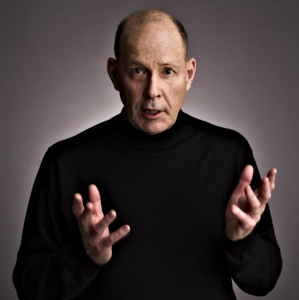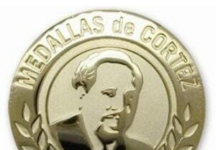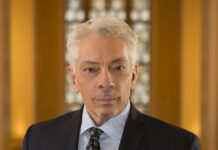
(By Chris Lytle) My mission is making successful people successful sooner. Sarah and I came up with that mission statement 35 years ago. Hold that thought.
One of my latest book purchases is Success Through Heart Failure Revised: Help and Hope for Those with Congestive Heart Failure by Marc Silver, MD.
Congestive heart failure: That’s what I’ve got and one of the reasons I’ve been away from the microphone for most of December and January.
The first paragraph of Success Through Heart Failure offers great advice for anyone facing adversity.
Chapter 1 is titled: Don’t Be Angry. Silver writes: “I feel I must say a few words about anger and emotions before I delve into other topics. Heart failure, in reality, is commonly a chronic disease process, meaning that although there is often not a complete cure, there are ways to improve and stabilize the condition and certainly better ways to understand and live with it. However, when most patients initially hear the words heart failure, which is indeed an unfortunate fortunate term, they equate the term with fatality, and an array of emotions emerge-or, more often, don’t emerge-and eventually impact relationships the patient has with physicians, nurses, and family members.”
When I recorded my last knowledge bite in early December 2021, I could barely say two sentences without pausing. I had shortness of breath and no longer had the energy to walk the 11 minutes to the office. I was taking the elevator instead of climbing the 24 stairs to my second-floor office. Classic denial.
Finally, I went to the emergency room. “You have A-fib and congestive heart failure,” said the doctor. I couldn’t feel my heart beating 155 times per minute, but it was.
I was angry at first. I worked out and ate right. Then, I started thinking of some of the things I still did wrong. And I decided not to think or say, “This shouldn’t be happening to me. And I accepted that it was happening to me. And that acceptance helped me focus on the positive steps I could take to heal.
Early in my sales training career, I ran across this definition of training: “Training is a planned program, designed to impart specific knowledge, skills and attitudes to increase desired behavior in measurable ways.”
This is sales training, therefore, because I’m talking about attitude.
Psychologist Julie Colwell, PhD is the author of The Inner Map Navigating Your Emotions to Create the Life You Want.
Here’s her take on this: She writes: “What is happening shouldn’t be happening.”
We seem to share a cultural perspective that, with enough planning, foresight, or thoughtfulness, we can make life predictable, keep it under control. The corollary to this is that, when something unplanned happens, it is a personal failure. Much criticism in relationships comes out of this: “If you’d paid that bill on time, we wouldn’t have these extra charges;” “Why are you having such a big reaction? I’ve never liked this kind of food;” “what were you thinking! You should have known that those ideas would never work.”
Keeping our attention on what we should have done to keep what is happening from happening is the perfect recipe for self-hatred. The self-flagellation that comes from thinking we should have been able to keep what is happening from happening is really an inside-out version of believing we should be able to control the uncontrollable. It also means we’re watching the wrong show: We’re looking back to the past, with some analysis of what we should/could/would have done. But it’s already been done. It’s over.
The alternative is to come into the present. All the research that money can buy won’t keep the present from being what it is. (Look at New Coke.) And placing our attention on the past keeps us from facing into all the details of what is going on around us right now–which is where we can actually do something, respond and take actions towards what we really want.
How much of your energy goes into trying to correct what has already happened? What would it be like for you to squarely be with what is, right now, with no thought of trying to make the past different? How does that change your personal effectiveness? Your serenity?
Staying in the present has helped me a lot. Doctors, friend and relatives have said, you have such a good attitude. I look forward to my cardiologist saying, this in the plan Here are the next steps. Let’s go
Like selling, healing is process. I’m ready to work that process for all I’m worth.
I was hospitalized for 29 days. It’s been a journey I wouldn’t have chosen, but I’m grateful that I’m still here and still helping to make successful people successful sooner.
Chris Lytle, thanks for your patience, glad to be back.
Talk soon.
Chris Lytle, Instant Sales Training, has conducted thousands of seminars for Radio Advertising Professionals. He is the author of several books on sales. You can contact Chris at https://instantsalestraining.com/ or call 423.541.3950.






Chris, Thank you for sharing. Some years ago I had you come into town (Flagstaff, AZ), to help educate my radio sellers and our local advertiser community…you were great! We’ve talked on the phone periodically since then. I’m glad you’re back.
Hi Steve,
Very glad to be “back.” Like selling, healing is a process. I’m working that process for all I’m worth.
So glad you are better! Chris, I’ve known you, sent sales people to you for training, read your books and I gotta say, this is article is one of the best ever. I plan to use it as the topic of discussion in this week’s one on one meetings with our AE’s. Thanks for writing it.
Sandy, I appreciate your kind comment. If you’d like, I will send you an audio version of this article with five discussion questions ready to go. Instant Sales Training. [email protected]
It was certainly written from the heart, Sandy. Glad you found it valuable.
Welcome back! We’re so glad you’re doing better!